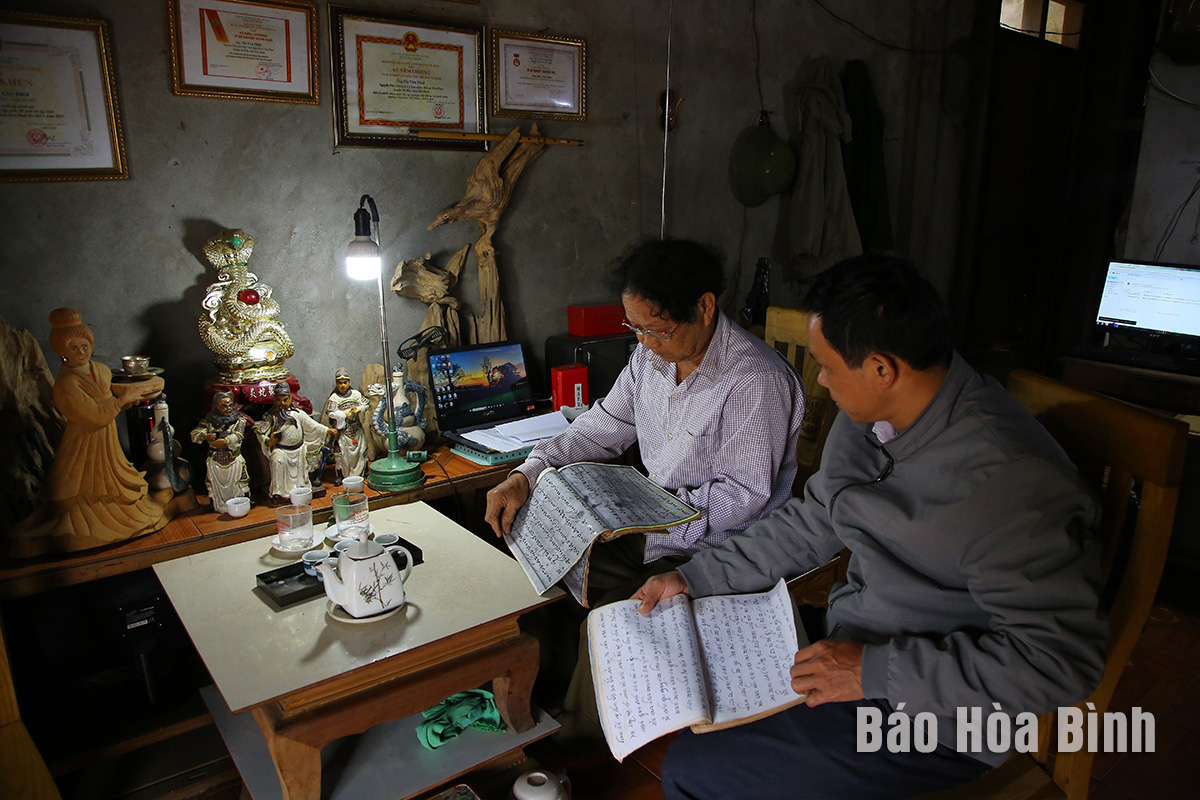



Ha Van Phoi (sitting inside) in Tan Pheo commune (Da Bac) knows and preserves many traditional cultural values of the Tay ethnic group in the locality.
Ha Van Phoi, who knows many traditional cultural features of the Tay ethnic group, shared that the Lunar New Year is the most important and biggest festival in a year of the Tay people. Their custom of welcoming Tet includes two stages: "het khau mo" which means the new rice celebration, and "het set – het chieng" which means the custom of welcoming the Lunar New Year, and is prepared from the last lunar month. The new rice and Lunar New Year celebrations start in the period from the first to the third day of January. The worshiping part usually has two rites: worshiping ancestors and worshiping the Land Genie and those who govern and look after the place where the family lives, with a hope that the ancestors and genies will help protect the family.
On the morning of the first day of the lunar new year, the Tay people have the custom of waking up early and going to the garden to pick the greenest and freshest leaves to bring home with the belief that they will bring lots of fortune and luck in the new year. Going to a neighbour's house, they will wear white to bring luck and ward off bad luck.
The new rice celebration has been preserved to this day. October is the month of rice harvest, families are happy because the hardships of the between-crop months are over. They use new rice to worship their ancestors.
Ha Van Le, Vice Chairman of the Tan Pheo commune People's Committee, said that the Tay ethnic group accounts for 74% of the commune’s population. The Tay people have many unique cultural features such as their own language and writing, customs and practices during holidays, Tet, weddings and funerals. Their costumes and houses are also made in their own style.